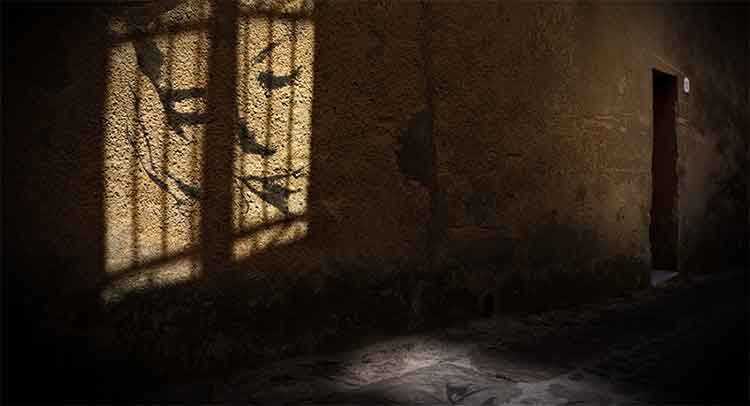When Josh died we moved from one world into another. From a known and certain world to one where previous ambitions and assumptions about what we wanted from life, from our friends and from those we love, were thrown into total confusion. In the seven years since Josh’s death we have found (in common with many other bereaved parents) a kind of invisible barrier has come between us and those who have not personally experienced the death of one of their children. This is nobody’s fault. This is the way it is. And clearly we would not wish this grief on anyone. Grief is painful and emotionally and physically exhausting. It is also very confusing. And no wonder. In our western world, bereavement and how to deal with difficult feelings are not things we are accustomed to acknowledging as an everyday part of social intercourse. We don’t learn how to mourn at our mother’s knee.
Hopefully the following 10 things will help to bring a little more understanding.
1. You can’t fix our grief
Our grief is not an illness, nor is it just some unfortunate thing getting in the way of a “normal, happy life.” Our grief is here to stay. Our child has died, but that doesn’t mean that we stop loving them or that they are not present in our lives anymore. Grief is the form love takes when someone dies and our grief is important to us – it is how we are learning to live inside our loss, how we carry what cannot be fixed. In a strange way we need our grief – it is how we survive. So please don’t do or say anything that you think will make it go away. To do so is to reduce further what is already a broken heart.
2. There is no timetable for grief
People say that time is a healer but the grief we have for our child has no end. This grief is for life. It’s not something we will “get over”. What you may observe is that grief comes in waves – at times overwhelming, at times barely noticeable but it will never go away.
Please don’t judge or make assumptions about how long we should grieve. And don’t ever ask a bereaved parent to move on or find closure. It’s for us to decide how we get on with life and platitudes about what our child would want are just not helpful.
3. Grief for a child is not like other kinds of grief
When a parent or a grandparent dies it is in the natural order of things. Death comes to us all but the death of a son or daughter (of whatever age) is out of tune with nature. The death of a child is never a natural event and is always in the wrong order of things. For most bereaved parents life will now seem very unfair. Consequently our grief is going to be of a different order. This is not to say that other forms of grief aren’t valid, just that the death of a child can produce a number of more complicated responses. When an older person dies, generally speaking we have a whole life story to remember – we have their history to tell. When a child dies it’s not only their history, it’s their future we have also lost.
4. Know that we have changed
Bereaved parents are a very different people to who we were before our child died. If you haven’t recognised that then know that it is true. When our child died a huge part of us died too. Well that’s what it feels like and in our attempts to reconstruct our lives again, to find a purpose to carry on, many previous assumptions will be challenged and we will be discovering many new insights that will have a profound effect on who we are. We have been traumatised by our child’s death and the shock to the system has provoked a new way of looking at life. Our priorities may have changed, our views about faith and the afterlife may have changed and we are in the process of finding ourselves again in what has for us become a very uncertain world.
Please have patience while we learn how to trust again. If our response to your offers of help seem ungrateful, please believe that this isn’t personal. Our culture offers us very few examples of how to grieve openly, fully and purposefully, and we may well act in ways that are not becoming to the person you thought you knew.
5. Don’t be afraid to talk about my child or to say their name
We will not crumble or cry at the mention of our child’s name. And even if we do it’s not you that has caused our tears. In any case these will more likely be tears of joy that you have decided to share a memory with us. These tears are actually a kind of release in the same way that laughter is. Our child’s death has left a huge hole in our lives (and maybe in yours too). More than anything we want to talk about our child, to remember how s/he lived even more perhaps than how s/he died. To recall memories with you is to know that you cared for our child and that you care for us. But perhaps more than that sharing stories about our child’s life will help us to accept their death – to make it more real. Our greatest fear is when everyone stops talking about her or him, as if s/he never existed. Remembering to include their name on Christmas cards is always a good thing.
6. Much of the time we will hide our grief.
Bereaved parents are very good at putting on a mask – and the longer it’s been since our child died the better we become at hiding our grief. When you meet us we may laugh and joke, but that could well be a cover for what’s really going on. Our lives may appear normal but often we are really struggling just to get out of bed in the morning. We wish we weren’t so broken for the pretence can be physically and emotionally exhausting. Grief is exhausting and it’s not something we necessarily want to share. That might be difficult to understand but sometimes its like we are living in a parallel universe and it’s not one we would want you to join.
There will also be times when we will need to hold the pain of our loss so close to our hearts that any attempt to relieve it will be rebuffed. These are very private, almost sacred moments and they are not to be shared – save perhaps with others who are similarly bereaved.
Please try not to be offended if you feel shut out from our grief – this is not personal.
7. Don’t run away from our grief.
Grief is frightening. We get that. And grief following the death of child is even more frightening. It’s frightening for you and it’s frightening for us. We have been told we are every parent’s worst nightmare. So we understand how difficult it can be to connect with us, with our grief and with our new reality. It is also really confusing and contrary to the previous request we do ask you not to run away from our grief. If you’ve tried calling and get no answer send an email or text message. Let us know that you are always there so that when the time is right we can call you.
When we do talk about how we are doing, try just to listen and to accept what are some very strong emotions. Remember there is nothing you can do to bring our child back. Similarly there’s nothing you can do to fix our grief. We know how painful, how awkward and how helpless this could make you feel, but if you can hold onto those feelings and stay with us, silently if necessary, but always without judgement, then we will know how much you really do care.
8. Think before you speak
Oh yes this is so important. Many of you will not know what to say when you meet a bereaved parent. This is to be expected – and it is absolutely OK to admit that. Finding the words to describe our loss is hard for us too. In a way it’s better to remain silent rather than come out with inane platitudes. Frankly our child might not be ‘in a better place’, and it matters not that we may have other children to care for. Neither are we about to start making another one as a replacement. We know you mean well, but please don’t say you understand unless you really do. We don’t need you to interpret our grief or to advise us of a better way to grieve.
9. Do some research on child loss and parental grief
This will help enormously should you want to find out more about parental bereavement. There is no rule book for how to grieve after the death of a child, but some general knowledge of the subject will help engage with and support us with more empathy. (note: empathy not sympathy)
There is a wealth of literature available on how bereaved parents adapt and survive after the death of a child. In the UK, The Compassionate Friends is a good resource. In the USA there is a wonderful website Refuge in Grief, which while not specific to child loss, is good for an understanding of the day to day concerns of the bereaved.
Of particular interest for this writer is the concept of ‘continuing bonds’ and our efforts to maintain a meaningful relationship with the deceased. For us this is a more healthy approach to grief supplanting as it does older ideas about ‘finding closure’ or ‘moving on’
LINKS:
The Compassionate Friends https://www.tcf.org.uk/
Refuge in Grief http://www.refugeingrief.com/
Continuing Bonds https://www.amazon.co.uk/Continuing-Bonds-Understandings-Education-Health/dp/1560323396
10. Grief can be a period of growth – there are benefits from grieving.
Grief is not all doom and gloom. And there is much to be learnt from our grief even, but perhaps more, from the grief parents will experience after the death of a child.
We all suffer – at some point in our lives we will all face tragedy and turmoil of one kind or another. Some would say that the only true connection between two human beings is through suffering. It’s not through joy or good times. The real heart to heart connection is through suffering and discomfort. And it’s then that we can see change in ourselves and growth in our understanding of others. Because if you are not hurting, if you are not uncomfortable, then there is no impetus for change. Why change what’s not broken. Bereaved parents have been broken and inevitably that forces us to look at life anew and to change –mostly we think for the better.
Thanks for reading
Jane and Jimmy (April 2018)
© 2018 The Good Grief Project








